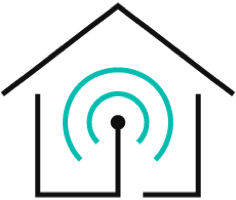Among married couples families with children in the USA, 97.4 percent had at least one, and 65.0 percent of these families had both parents employed. And if you are also a working parent, you must be wondering at what age can kids stay home alone. You may grapple with this situation while also contending with the pervasive influence of technology on your child's life.
With the availability of smartphones, tablets, and computers, kids are exposed to a digital landscape that can be potentially harmful. Your kids may spend excessive time online, engaging in age-inappropriate content or even encountering cyberbullying if left unsupervised.
Therefore, besides worrying about the safety of your kids when home alone, you may also struggle to keep a check on their technology usage. But worry no more!
This article will inform you what age can kids stay home alone and how you can balance technology and child development. Let's dive in!
- Age Considerations for Kids Staying at Home Alone
- Technology's Influence on Child Development
- Balancing Technology and Child Development
- A Comprehensive Approach: How to Keep Your Child Safe at Home
Age Considerations for Kids Staying at Home Alone
Generally, 12 years of age is old enough for a kid to stay at home alone. But remember that there's no one-fit solution when it comes to identifying at what age can kids stay home alone. The nature and behavior of every kid varies, and as a parent, you must consider a few factors to determine the right age for your kid to leave them alone.
Following are some of these considerations:
Maturity and Responsibility
First things first - when pondering over whether to leave your kids home alone, you should consider their maturity level and sense of responsibility. Evaluate if your children have the ability to follow instructions, respond appropriately to unexpected situations, and make safe decisions.
These questions help you get an appropriate idea about your kids' maturity and responsibility level:
- Do they understand basic safety rules and guidelines for the house?
- Are they able to communicate their needs and concerns effectively?
- Can your child stay calm under pressure and handle emergencies?
- Have they demonstrated responsible behavior in other situations?
Luckily, if the answer to all these questions is positive, then you shouldn't worry much about leaving your kid at home alone.
Legal Factors
Legal factors are a crucial consideration when contemplating whether to leave your children home alone. The legal landscape varies significantly based on your jurisdiction and local laws. It's essential to research and understand the age requirements established by your state or region for leaving children unsupervised.
All these regulations are for the safety and well-being of the child in mind, ensuring that the children are adequately prepared to handle the responsibilities of being alone. But not all states have regulations regarding at what age can kids stay home alone, except these three:
- Illinois (14 years old)
- Oregon (10 years old)
- Maryland (8 years old)
In case you live anywhere other than these three states, you must take into account proper guidelines and environmental and behavioral factors when deciding what age can kids stay home alone.
Neighborhood
The neighborhood plays a significant role in determining at what age can kids stay home alone. Consider crime rates, the overall atmosphere, and your familiarity with neighbors. A safe neighborhood with a strong sense of community can provide an added layer of security when your children are alone at home.
Having trustworthy neighbors who are accessible in case of emergencies can be immensely reassuring. Furthermore, proximity to friends or relatives who can offer assistance or support adds to your children's safety net when you are away for work.

Technology's Influence on Child Development
Now that you are aware of at what age can kids stay home alone, you must consider how increasing technological innovations impact child development.
Positive Impacts
Some positive effects of technology on child development are:
Increased Learning Opportunities
Hearing the word technology makes us all wonder about its negative effects on child development. But that's not the only face of technology. It has opened up a vast array of learning opportunities for children. Access to educational apps, online courses, and interactive websites allows your children to explore various subjects at their own pace. They can engage with multimedia content that caters to different learning styles, making education more engaging and effective.
On top of that - interactive simulations and virtual field trips provide insights that traditional learning methods might not offer. With technology, children can access a wealth of information, fostering curiosity and a love for learning.
Boost in Creativity
Technological innovations also serve as a powerful tool for nurturing creativity in children. Digital platforms enable your kids to express themselves through art, music, video creation, and more. Animation software, graphic design tools, and music composition apps empower children to explore their artistic inclinations.
They can experiment with different mediums and techniques, boosting their confidence and innovation. Furthermore, technology offers new ways to share their creations with a global audience, fostering a sense of accomplishment and pride.
Improved Communication Skills
Here comes another positive impact of technology - it has transformed the way children communicate. Kids now utilize technology to connect with peers and people from different cultures globally. Online platforms, social media, and messaging apps encourage children to express their thoughts, share experiences, and engage in meaningful conversations.
As per NIH, the main benefits of using technologies by children include strengthening friendships and the possibility of greater social interactions. There are also video calls and online collaboration tools, making them learn how to effectively convey ideas and collaborate in virtual spaces. These interactions contribute to the development of crucial communication skills that are essential in today's interconnected world.
Negative Impacts
Let's explore the negative effects of technology on child development:
Sedentary Lifestyle and Physical Health Concerns
Technology is becoming an important part of our lives, leading to increased screen time for children, often at the expense of physical health. Long periods of sitting while using devices can contribute to a sedentary lifestyle. It's linked to various health issues, such as obesity, poor posture, and even sleep disturbances.
What's more? Lack of physical activity can also hinder the development of motor skills that are essential for a child's overall growth. This makes leaving kids alone at home for more extended periods is an ordeal for parents.
Reduced Face-to-Face Social Skills
Excessive use of technology can potentially impact a child's ability to develop strong face-to-face social skills. Spending significant time interacting with screens may lead to reduced opportunities for in-person social interactions and communication.
This can hinder the development of essential social skills, such as reading non-verbal cues, active listening, and effective interpersonal communication. Children may also struggle with interpreting emotions and maintaining eye contact when communicating offline.

Balancing Technology and Child Development
Follow these tips to strike a balance between technology and child development;
- Set Screen Time Limits: Establish clear guidelines for the amount of time children can spend on screens each day, balancing it with other activities.
- Create Tech-Free Zones: Designate specific areas, such as the dining room or bedrooms, as tech-free zones to encourage face-to-face interactions and relaxation.
- Encourage Creativity: Balance consumption with creation by encouraging your child to use technology for creative endeavors like drawing, writing, or making videos.
- Prioritize Active Play: Encourage regular physical activity and outdoor play to ensure they develop gross and motor skills.
Following these tips not only plays a helpful role in your child's development but also gives you peace of mind when making the decision of what age can kids stay home alone.
A Comprehensive Approach: How to Keep Your Child Safe at Home
Here are some tips to keep your child safe at home alone:
Inform them About Emergency Contacts
Ensuring your child knows essential emergency contacts is paramount for their safety when alone. Make sure they are familiar with important numbers like 911 for immediate assistance.
Furthermore, you should provide them with a list of trusted neighbors, relatives, or family friends who can be contacted if needed. Brief your kids when and how to use these numbers appropriately, emphasizing that reaching out for help is okay when there's a genuine concern.
Use Smart Plugs
Smart plugs are a valuable tool for maintaining safety and control when your child is home alone. Their auto shut-off design can prevent potential hazards by automatically turning off devices like irons, heaters, or curling irons after a specified time. Moreover, smart plugs allow you to remotely control connected appliances, which can be useful for creating the illusion of someone being home.
You can use them to turn on lights, smart TVs, or radios, enhancing security by deterring potential intruders. The cherry on the cake - smart plugs help keep the internet connection stable, ensuring you can monitor your child through smart cameras, smart security systems, or other connected devices. Here's the best smart plug option for your home:
EVVR Energy Monitoring Smart Plug and Relay
The EVVR Energy Monitoring Smart Plug and Relay – is a groundbreaking solution for the safety of your children at home alone. This smart plug offers far more than energy monitoring; it encompasses a suite of features meticulously crafted to safeguard your loved ones.
However, its unwavering commitment to safety sets the EVVR Smart Plug apart. Its tamper-proof shell design, zero-crossing switching protection, and overload and over-temperature protection collectively create a secure environment for your family.
The added button lock function prevents accidental disassembly, thus reducing the risk of electric shock, making it ideal for homes where children are alone. In addition, the plug's ability to automatically restart the router in case of a lost network connection ensures uninterrupted monitoring, offering peace of mind to parents even from a distance. Using this smart plug also makes deciding at what age can kids stay home alone easier. Some of its key features are:
Key Features
- Tamper-Proof Design for Enhanced Safety
- Zero-Crossing Switching Protection, along with overload and Over-Temperature Protection
- Button Lock Function to Prevent Accidental Disassembly
- Auto-Restart for Network Connection Loss
- Compatible with High-Power Appliances (Up to 16 Amps)
- Seamless Integration with Apple HomeKit and Wireless Siri Voice Command Compatibility
Secure Entry Points
Teaching your child to secure entry points like doors and windows is fundamental to home safety. Ensure that your child knows how to properly lock all entrances before they are left alone.
Consider installing deadbolts or additional locks for an added layer of security. If your child is older and responsible enough, consider providing them with a spare key to carry in case of emergencies. Properly secured entry points significantly reduce the risk of unauthorized access and enhance your child's safety.
Conclusion
Before deciding at what age can kids stay home alone, you should delve into the impacts of technology on your children. Also, make sure you follow all the safety tips to make your home safer. The best solution for your home and kid's safety is the EVVR Energy Monitoring Smart Plug and Relay.
It comes with an auto shut-off design and overload protection that protects your children when you are at work. EVVR also offers other smart home products that give you, as a parent, additional peace of mind. Our fantastic range includes EVVR Smart In-Wall Relay Switch, EVVR Hub, EVVR Pad S, etc. So, get in touch and have the peace of mind!
















